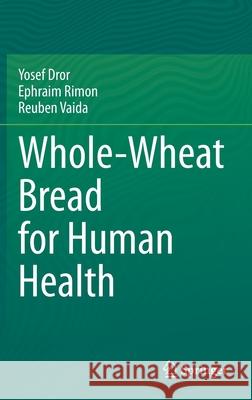Whole-Wheat Bread for Human Health » książka



Whole-Wheat Bread for Human Health
ISBN-13: 9783030398224 / Angielski / Twarda / 2020 / 514 str.
Whole-Wheat Bread for Human Health
ISBN-13: 9783030398224 / Angielski / Twarda / 2020 / 514 str.
(netto: 841,46 VAT: 5%)
Najniższa cena z 30 dni: 771,08
ok. 22 dni roboczych.
Darmowa dostawa!
“I could see this as a useful resource for researchers, specifically those interested in whole wheat bread and whole grains. … it certainly could be useful for researchers who are interested in this topic as well as those who are researching the impact of eating patterns as a whole.” (Amy Hess Hess Fischl, Doody's Book Reviews, September 18, 2020)
Yosef Dror, PhD Nutritionist, The School of Nutritional Sciences, The Faculty of Agriculture, The Hebrew University of Jerusalem, Israel
Efraim Rimon, MD Gastroenterologist, Head of the Gastro-Geriatric Unit, Kaplan-Harzfeld Medical Center, Israel
Reuben Vaida, BSc Food Technologist, Einat Food Industries Israel.
This book examines the effect of whole-wheat bread on health, with evidence linking the consumption of whole-wheat products to a decrease in the relative risk of non-communicable diseases in comparison with products baked from refined flour. The authors focus on key areas such as milling and refining procedures, bakery products, and assessment of the present consumption of wheat products. They offer a detailed description of all available ingredients of wheat-kernel, with particular attention paid to the health benefits of wheat-kernel antioxidants and dietary fiber ingredients. Vitamins, glutathione, choline and betaine, carotenoids, sterols and stanols are covered, and the book concludes with a general overview of the effect of whole-wheat bread on colon activity and immune capacity. Methods of improving bread nutritional quality, and the potential for the upgrading of the nutritional qualities of whole-bread, are also discussed.
1997-2026 DolnySlask.com Agencja Internetowa
KrainaKsiazek.PL - Księgarnia Internetowa









